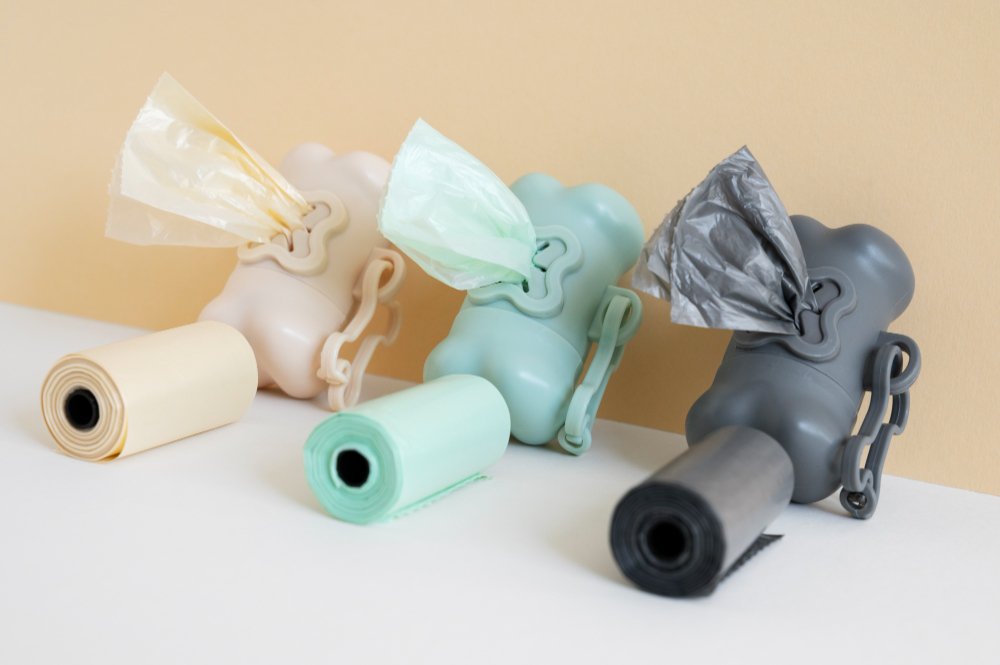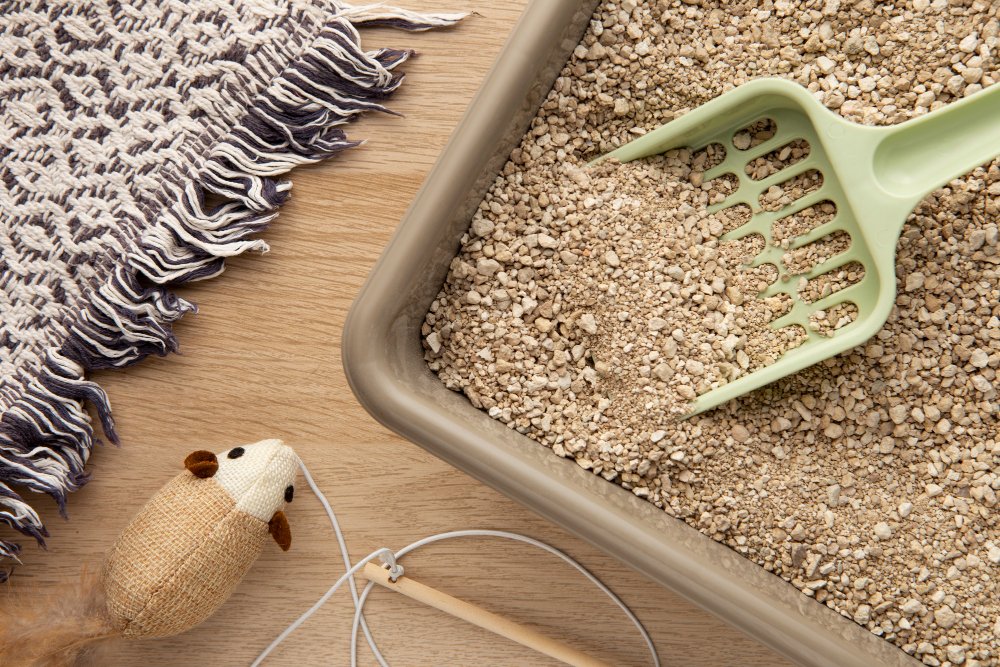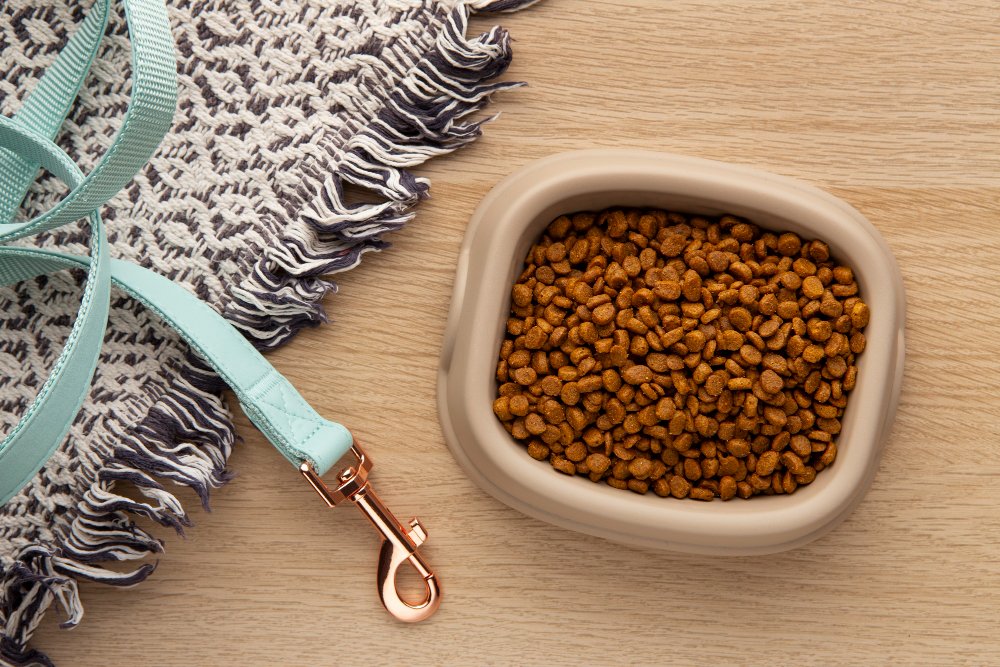Eco-Friendly Pet Products: Sustainable Choices for Your Furry Friend
Every pet parent wants the best for their companion animals—but have you considered your pet’s environmental pawprint? With more than three-quarters of U.S. households owning pets and annual spending surpassing $100 billion, the demand for sustainable choices is growing fast. This guide covers everything you need to know about eco-friendly pet products, backed by ethical brands and thoughtful innovation, to help you and your furry friend go green together.
Table of Contents
- Why Choose Eco-Friendly Pet Products?
- Top 10 Eco-Friendly Pet Products for 2025
- Biodegradable Poop Bags
- Organic Pet Food
- Recycled Pet Toys
- Hemp Collars and Leashes
- Eco-Friendly Pet Beds
- Natural Pet Shampoo
- Compostable Cat Litter
- Reusable Pet Wipes
- Sustainable Pet Bowls
- Eco-Friendly Travel Carriers
- How to Start Your Sustainable Pet Journey
- FAQ: Eco-Friendly Pet Products
- Conclusion: Go Green for Your Pet!
Why Choose Eco-Friendly Pet Products?
Pets are beloved members of millions of families, but the products we buy for them—like plastic toys, conventional food packaging, chemical-laden shampoos, and single-use items—can put a strain on the environment. Every year, about 8 million metric tons of plastic end up in the ocean, and pet products are part of the problem. Most traditional items rely on plastics or non-renewable resources, many contain toxic additives, and many brands still don’t prioritize responsible manufacturing.
What does “eco-friendly” mean? Sustainable pet products aim to:
- Decrease landfill waste and plastic consumption.
- Use renewable, biodegradable, or upcycled materials.
- Avoid toxic chemicals, dyes, and finishing agents.
- Promote ethical sourcing and cruelty-free manufacturing.
- Prioritize packaging that’s recyclable or compostable.
By making sustainable swaps, you protect your pet’s health, minimize harm to the planet, and support brands with ethical missions.
Top 10 Eco-Friendly Pet Products for 2025
1. Biodegradable Poop Bags

The problem: Conventional plastic poop bags accumulate in landfills for centuries. Billions are tossed each year, compounding plastic pollution.
The eco-friendly fix: Biodegradable poop bags made from cornstarch, compostable bioplastics, or plant fibers break down in a fraction of the time.
- Example: Furry Tales and Beyond Green both offer compostable bags certified by the Biodegradable Products Institute; Furry Tales’ bags decompose in about 90 days under industrial conditions.
- Benefits: Reduces landfill waste; safer for soil and marine life.
- Tip: Pair with a backyard composting system or municipal compost program where available.
2. Organic Pet Food

The problem: Most commercial pet foods are made with conventionally grown ingredients containing chemical residues, hormones, or GMOs—negatively impacting pet health and the environment.
The eco-friendly fix: Organic pet foods use ingredients grown without pesticides or artificial additives.
- Example: Open Farm offers USDA-certified organic, grain-free options with full ingredient traceability and humanely raised proteins.
- Benefits: Supports regenerative agriculture and animal welfare; cuts down on toxic runoff.
- Tip: Look for transparent brands that list sources and practice sustainable fishing or farming.
3. Recycled Pet Toys
.jpeg)
The problem: Many pet toys are made from new plastics that contribute to landfills and ocean waste after they're thrown out or lost.
The eco-friendly fix: Toys made from recycled PET bottles, upcycled rubber, or other repurposed materials are durable and safe.
- Example: West Paw’s Zogoflex toys and Cycle Dog’s upcycled rubber chew toys are both BPA- and phthalate-free, endlessly recyclable, and tough enough for enthusiastic chewers.
- Benefits: Diverts waste and provides peace of mind for pet owners.
- Anecdote: Switching your dog to West Paw’s toys can make playtime guilt-free without sacrificing fun or safety.
4. Hemp Collars and Leashes
.jpg)
The problem: Nylon and polyester pet accessories are derived from petrochemicals and don’t biodegrade.
The eco-friendly fix: Hemp grows quickly, uses little water, and needs no pesticides. It’s naturally strong—perfect for daily walks.
- Example: EarthDog creates durable, machine-washable hemp collars and leashes that soften over time and last for years.
- Benefits: Biodegradable, hypoallergenic, and safe even for sensitive skin.
- Tip: Pair your hemp collar with an engraved wooden or recycled aluminum ID tag for a full eco-set.
5. Eco-Friendly Pet Beds
The problem: Beds stuffed with virgin polyester fill are a big source of microplastic pollution.
The eco-friendly fix: Look for beds filled with recycled plastic bottles or made from upcycled fabric.
- Example: P.L.A.Y. and Harry Barker offer beds stuffed with certified post-consumer recycled materials, and covers made from organic or upcycled cotton.
- Benefits: Keeps plastic out of landfills and offers hypoallergenic comfort.
- Tip: Wash covers with plant-based detergent to maximize your green efforts.
6. Natural Pet Shampoo
The problem: Synthetic shampoos often contain sulfates, parabens, and artificial colors that can irritate pets and pollute waterways.
The eco-friendly fix: Natural pet shampoos made with biodegradable, plant-based ingredients cleanse gently, moisturize, and rinse clean without leaving toxic residues.
- Example: Hank’s Garden and BearandKind Apawthecary make shampoos with ingredients like soothing lavender and calendula, all packaged in recyclable bottles.
- Benefits: Safe for both pets and aquatic life.
- Tip: Use with a reusable grooming mitt to reduce single-use plastics during bath time.
7. Compostable Cat Litter

The problem: Clay-based cat litters require strip-mining and don’t biodegrade.
The eco-friendly fix: Litters made from corn, wheat, wood, or coconut fibers naturally break down and are safe to compost in some municipal programs.
- Example: Sustainably Yours and World’s Best Cat Litter both clump well, are low-dust, and compost in as little as 30 days.
- Benefits: Less dust means healthier pets and owners.
- Testimonial: Many cat owners report easier cleanup and less odor since making the switch.
8. Reusable Pet Wipes
The problem: Disposable wipes contain plastics and chemicals, clogging landfills and sometimes harming sensitive paws.
The eco-friendly fix: Reusable wipes made from bamboo or organic cotton are gentle, washable, and last for months.
- Example: 4furbaby bamboo wipes are soft, biodegradable, and great for quick cleanups.
- Benefits: Up to 100 uses per wipe; lower carbon footprint overall.
- Tip: Machine-wash in a mesh bag to keep them fresh and extend their lifespan.
9. Sustainable Pet Bowls

The problem: Plastic bowls can leach chemicals and are rarely recycled.
The eco-friendly fix: Switch to stainless steel or bamboo bowls, which are durable, recyclable, and don’t retain odors or bacteria.
- Example: The Pets Larder makes bamboo and stainless bowls that resist tip-overs and are free from harmful glues or coatings.
- Benefits: Safer for pets; easier to clean and sanitize.
- Tip: Choose an elevated stand for larger breeds or senior pets to promote good digestion.
10. Eco-Friendly Travel Carriers
The problem: Many carriers use plastics, polyester, or synthetic fillers.
The eco-friendly fix: Carriers made from recycled or sustainable materials are lighter, greener, and still airline-approved.
- Example: FunnyFuzzy’s travel carriers are constructed from sustainable DuPont paper, which is recyclable, water-resistant, and strong enough for travel.
- Benefits: Less plastic, lower emissions, and modern style.
- Tip: Add a hemp or organic cotton blanket to make your pet’s journey even more comfortable—without adding microplastics.
How to Start Your Sustainable Pet Journey
Feeling inspired but overwhelmed? Going green doesn’t have to mean an instant overhaul. Here’s a quick, practical roadmap:
- Start small by swapping one or two high-impact items (like poop bags or litter).
- Research brands—look for third-party certifications such as USDA Organic, Global Recycle Standard, or membership in the Pet Sustainability Coalition.
- Replace old items as they wear out, rather than discarding them prematurely.
- Seek out companies that publish detailed sourcing and manufacturing info.
- Prioritize locally made or small-batch products to reduce carbon emissions from shipping.
- For extra guidance, consult resources like The Good Trade’s sustainable pet care guides.
Pro Tip: Document your pet’s journey to greener living on social media with #GreenPetCare and inspire friends to follow suit!
FAQ: Eco-Friendly Pet Products
What makes a pet product “eco-friendly”?
Eco-friendly items are made from sustainable, reused, or responsibly sourced materials and avoid toxins, single-use plastics, and wasteful packaging. They are safe for pets and the planet and typically feature certifications or transparent ingredient lists.
Are these products safe for all pets?
Yes! Most prioritize pet health, using non-toxic ingredients and avoiding allergens. Always check the label, especially if your companion has sensitivities.
How much more do sustainable products cost?
While some cost more upfront, their durability and reduced environmental fee often make them cost-competitive in the long run. Reusable items (like wipes or toys) pay for themselves quickly.
How else can I reduce my pet’s environmental pawprint?
- Adopt, don’t shop—give a home to a rescue pet.
- Limit overfeeding and food waste.
- Support local shelters and sustainable brands.
- Recycle or upcycle old beds and toys.
Conclusion: Go Green for Your Pet!
Your pet’s tail wags of joy shouldn’t harm the planet. Each sustainable choice—whether switching to biodegradable bags, buying a recycled toy, or choosing natural shampoo—adds up to a healthier environment and a safer home for your animal companions. Get started today: swap out one product, share your experiences, and encourage your fellow pet owners to join the movement. Together, let’s make 2025 the year your furry friend goes green, and your love for them leaves nothing but pawprints—never a carbon footprint—on the planet.
References:
EPA, plastic pollution in oceans
Biodegradable Products Institute certification
Open Farm, USDA Organic pet foods
West Paw, recycled pet toys
P.L.A.Y. sustainability information
Hank’s Garden, natural pet shampoo
4furbaby, reusable pet wipes info
FunnyFuzzy, eco-friendly travel carrier







